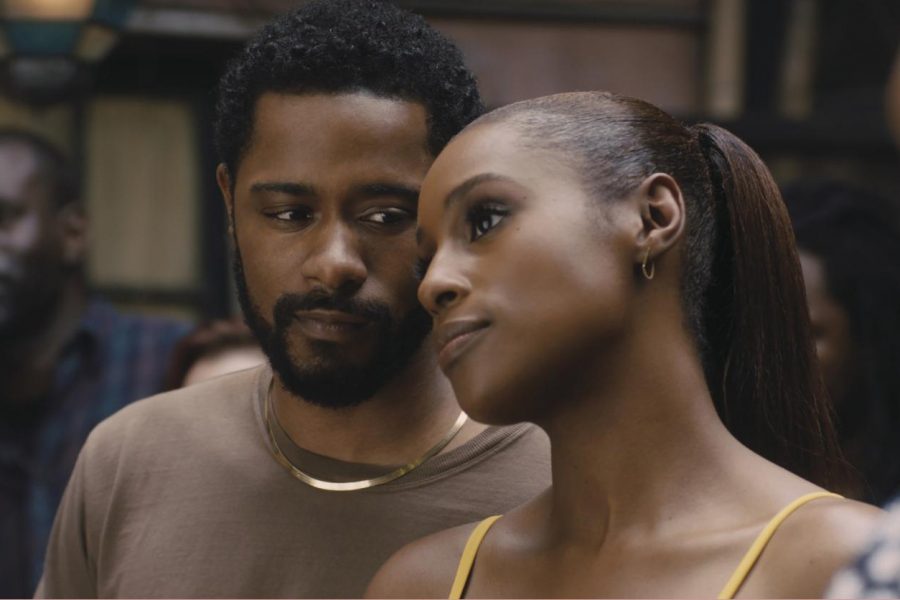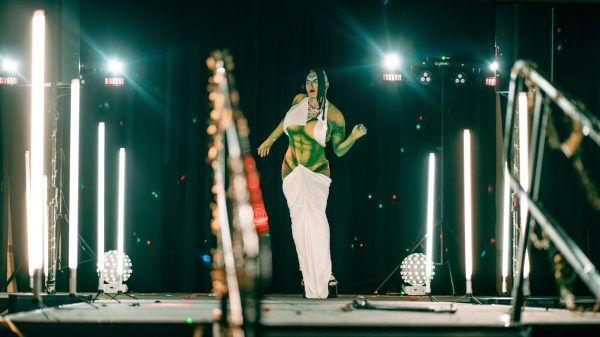“The Photograph” Captures Love and Loss
Within the romantic comedy genre, there are very few films where you can imagine yourself in the main character’s shoes—to understand and feel all their qualms, complexities and deep-rooted pains. For some, due to a lack of representation and diverse casting in these films, it’s near impossible to picture yourself in their shoes.
Romantic comedy skeptics like myself find it difficult to sit down and watch an hour and half cliché movie where a girl either tries to decide whether this one “perfect” man is worthy of her time and affection or whether she can convince him to love her.
And let’s not forget the rom-coms where we’re told to root for the self-proclaimed “nice guy” who, in the end, was projecting his fantasies on a girl who never even showed signs of reciprocating feelings.
With Issa Rae (HBO’s “Insecure,” “Little”) and LaKeith Stanfield’s (FX’s “Atlanta,” “Sorry to Bother You”) undeniable chemistry, “The Photograph” is the perfect Valentine’s romantic comedy whose strengths lie in its authenticity.
The film stars Rae as Mae, the daughter of a famed New York photographer. When her mother Christina unexpectedly passes, Mae is left confused and angry that her mother never managed to show her just how much she loved her. Christina left Mae a confessional letter that ultimately reveals her past and transports the audience to Christina’s early adulthood in rural Louisiana.
New York Journalist Michael (Stanfield) discovers Christina’s early photography while interviewing Isaac (Rob Morgan), a Louisiana fisherman who once knew her.
Some may call it fate, others might call it coincidence, but once Michael and Mae meet back in New York, their attraction to each other is palpable.
The film doesn’t play into old romantic comedy clichés, but instead demonstrates your romantic desires, from museum events to clinking wine glasses in a dimly lit living room during a raging storm.
Stella Meghie, who both wrote and directed the film, does an amazing job of filling each character’s life with substance. No character is portrayed as a simple sidekick, created solely to uplift the main characters during times of distress. Supporting characters offer truths that our main characters may have never considered without their perspective.
The soundtrack is similar to television shows like Rae’s “Insecure,” portraying Black lives and Black love alongside Black artists (even Kehinde Wiley got a shout out). The soundtrack boasts prolific Black musicians from the past to present, including Al Green, Luther Vandross, Kendrick Lamar, The Internet and Solange.
The ending was refreshing; it remained wholesome while also demonstrating the power of love and forgiveness. We never get to see the two lovers move in with each other or get married, but it is suggested that no matter what happens to them they’re predestined to find each other.
Scrolling down Metacritic, you spot several critics for publications like Rolling Stone, San Francisco Chronicle and the New York Post bagging on the movie for its lack of drama. For a story like this, “drama” wasn’t the goal.
It’s a stereotype—and a mostly true one at that—that the only black narratives that get recognized in pop culture and praised by critics tend to be ones relating to slavery and civil rights. To gain any level of critical success, your characters have to “overcome all odds.”
Movies like “Precious” (2009) demonstrate this perfectly. Adapted from the book “Push” by acclaimed writer and poet Sapphire, “Precious” is a beautiful film that went on to collect five Academy Award nominations and won two for Best Writing for an Adapted Screenplay and Best Actress in a Supporting Role.
For those who may have been on the younger side when the film premiered (I was nine years old and somehow someone let me see this in theaters), the main character Precious (Gabourey Sidibe) is pregnant by her father for the second time. She cannot read or write, and she’s constantly abused by her mother. It’s not until an opportunity to attend an alternative school that she transforms, battling her oppression to create a different life for herself.
When considering the pushback to “The Photograph,” it begs the questions: would this film have ever been celebrated if not for the mass amounts of trauma the main character has to endure to reach her happy ending? Do we have to all witness the abuse and torture of Black bodies to view it as Oscar-worthy?
These questions have been circulating Hollywood since director Spike Lee started his career in the late 70s.
“The Photograph” is a refreshing movie that showcases both the versatility of Rae and Stanfield as actors and the importance of representation within all genres of film. If you’re in the mood for a modern, diverse take on the typical romantic comedy or have been anxiously awaiting the likes of Rae and Stanfield connecting on the silver screen, I wholeheartedly recommend watching this movie at a theater near you.










